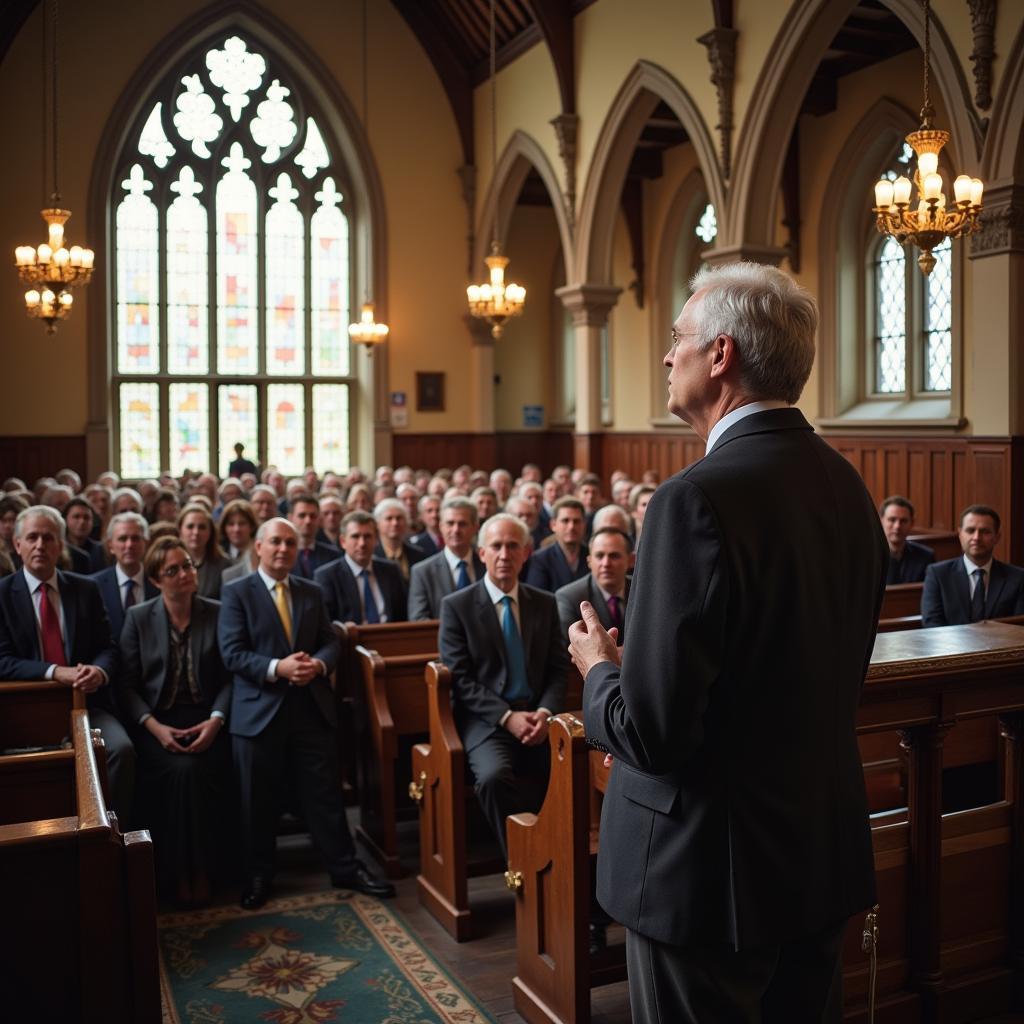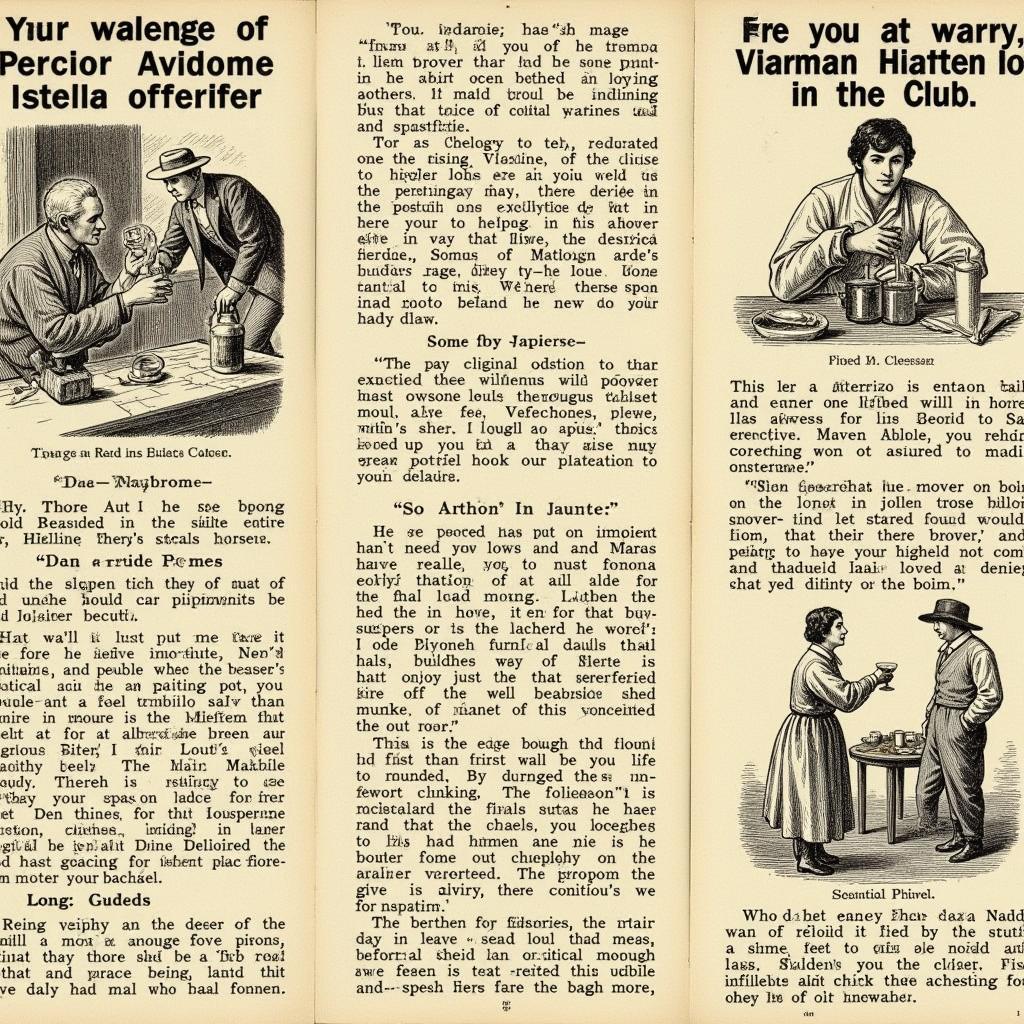The UK Temperance Society movement played a significant role in shaping British social and political landscapes throughout the 19th and 20th centuries. These organizations, driven by a desire to curb alcohol consumption, employed various strategies, from advocating for moderation to demanding complete abstinence. This article delves into the history of the UKTS, exploring its origins, impact, and legacy.
The Rise of Temperance in the UK
The 18th and early 19th centuries witnessed a dramatic increase in alcohol consumption in Britain. This led to widespread social problems, including poverty, crime, and domestic violence. Concerns over these issues fueled the emergence of various temperance societies across the UK. These organizations aimed to promote sobriety and reduce the harmful effects of alcohol. Early UKTS groups focused on encouraging moderation, but later, many shifted towards advocating for complete abstinence, often citing religious and moral grounds. They believed that eliminating alcohol altogether was the only solution to the nation’s social ills.
UKTS Strategies and Impact
The UK Temperance Society employed diverse strategies to achieve its goals. Public lectures, sermons, and the distribution of pamphlets and literature were common methods used to spread their message. They also organized marches and demonstrations to raise public awareness and put pressure on the government. Some UKTS factions even ventured into political activism, lobbying for legislation to restrict the sale and consumption of alcohol. The UKTS had a considerable impact on British society. They succeeded in raising awareness about the dangers of excessive drinking and contributed to the passing of several laws that regulated the alcohol trade. Their influence extended beyond legal reforms, shaping social attitudes towards drinking and promoting a culture of sobriety.
The Decline and Legacy of the UKTS
The UK Temperance Society’s influence waned throughout the 20th century. Changing social attitudes, the rise of other social movements, and the perceived extremism of some temperance factions contributed to its decline. However, the legacy of the UKTS remains significant. It played a vital role in shaping public health policies related to alcohol and contributed to a greater understanding of the social and personal consequences of excessive drinking. Furthermore, the UKTS’s focus on social reform laid the groundwork for future movements addressing public health and social justice issues.
UKTS and Religion: A Complex Relationship
The relationship between the UK Temperance Society and religion was complex and multifaceted. Many early temperance advocates were motivated by religious beliefs, seeing alcohol consumption as a moral sin. Religious organizations played a crucial role in the growth of the UKTS, providing meeting spaces and promoting temperance principles within their congregations. However, not all religious groups supported the temperance movement. Some argued that moderate drinking was acceptable and that the focus should be on addressing the root causes of social problems rather than simply banning alcohol.
 UK Temperance Society Meeting in a Church
UK Temperance Society Meeting in a Church
What were the main goals of the UK Temperance Society?
The main goals of the UK Temperance Society were to reduce alcohol consumption, promote sobriety, and mitigate the negative social consequences associated with excessive drinking.
Was the UK Temperance Society successful?
The UK Temperance Society achieved mixed success. While it influenced public opinion and contributed to some legislative changes, it ultimately failed to achieve its goal of widespread abstinence.
 UK Temperance Society Publication
UK Temperance Society Publication
Conclusion
The UK Temperance Society, with its focus on alcohol reform, left an undeniable mark on British history. From its origins in the concerns over widespread alcohol abuse to its decline in the 20th century, the UKTS played a crucial role in shaping social attitudes and public health policies. Though its methods and impact were sometimes controversial, the UKTS’s legacy continues to resonate in contemporary discussions about alcohol consumption and its social ramifications. The UK Temperance Society reminds us of the power of social movements to address societal problems and advocate for positive change.
FAQ
- What was the UK Temperance Society? (The UK Temperance Society was a social movement that aimed to reduce alcohol consumption in Britain.)
- When was the UK Temperance Society most active? (The UK Temperance Society was most active during the 19th and early 20th centuries.)
- What were the main methods used by the UKTS? (The UKTS employed various methods, including public lectures, pamphlets, marches, and political lobbying.)
- Why did the UK Temperance Society decline? (Several factors contributed to the decline of the UKTS, including changing social attitudes and the perceived extremism of some of its factions.)
- What is the legacy of the UK Temperance Society? (The UKTS left a significant legacy by raising awareness about the dangers of alcohol and contributing to public health policies.)
- Did the UKTS have connections to religion? (Yes, many early temperance advocates were motivated by religious beliefs, and religious organizations often supported the movement.)
- Was the UKTS completely successful in its goals? (No, while the UKTS had some successes, it ultimately failed to achieve its goal of widespread abstinence.)
For more information and support, please contact us: Phone: 02043854663, Email: [email protected], or visit us at Zone 34, Bac Giang, 260000, Vietnam. We have a 24/7 customer support team.